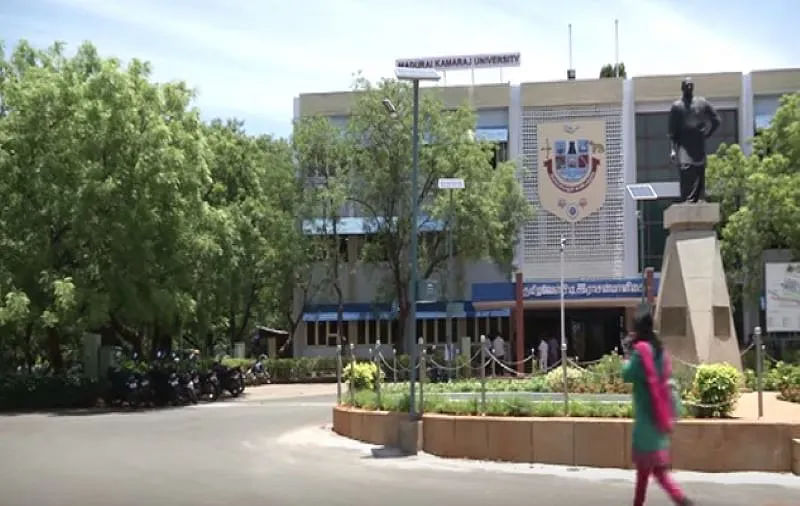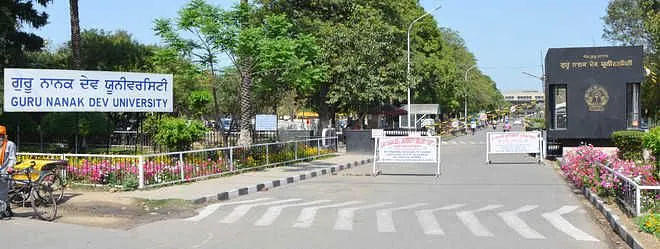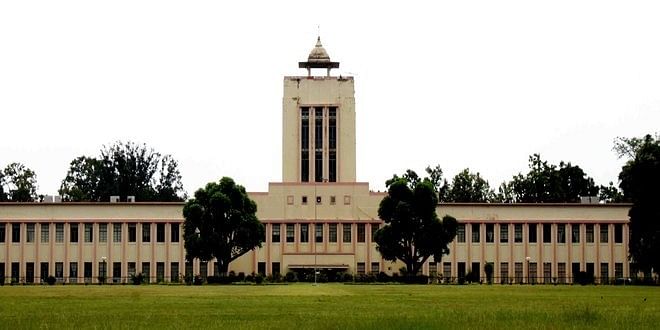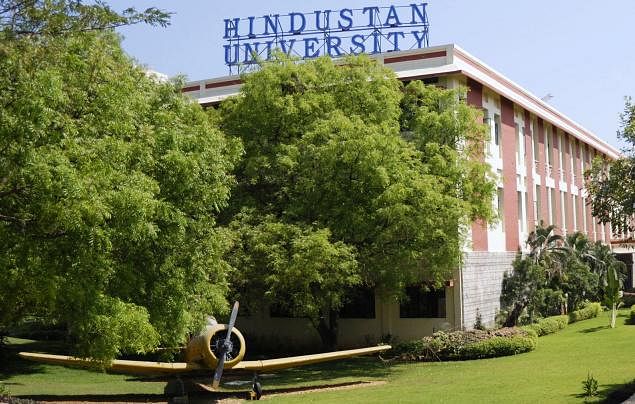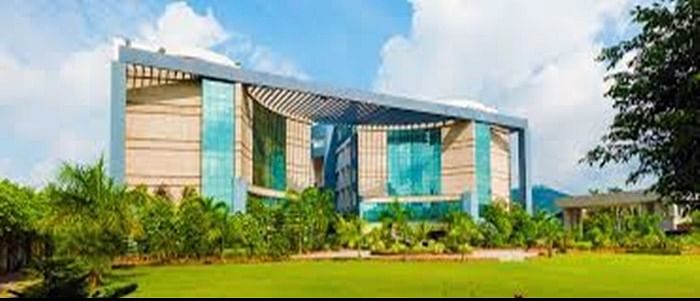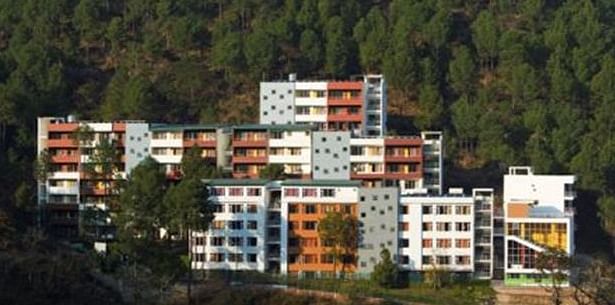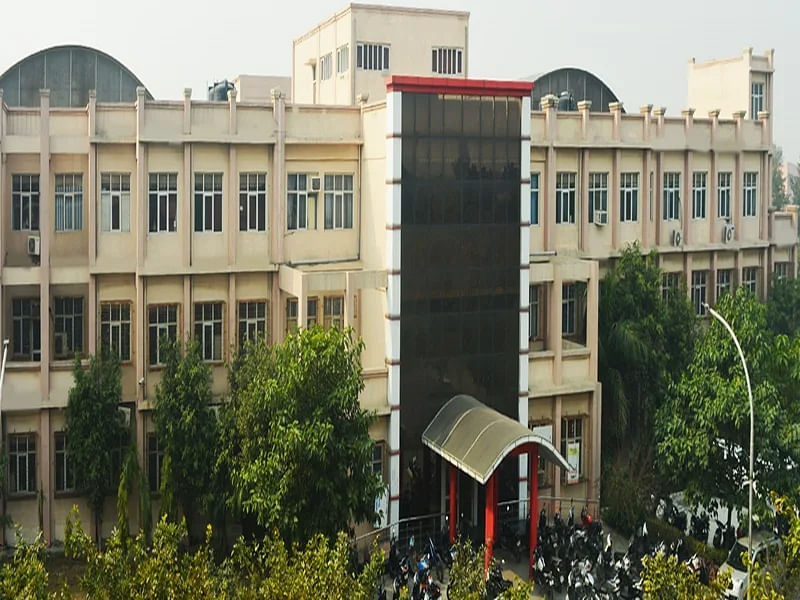M.Sc Food Technology: Course Details, Admission, Eligibility, Fees

M.Sc Food Technology is a postgraduate course with a duration of two years that deals with the fundamental understanding of the production of food, it's the packaging. Since it has a good job scope worldwide, students get placed in reputed firms. Hygiene Food Corporation of India, Modern Food Corporation, North-Eastern Agricultural Marketing Corporation, etc., offer good job opportunities for the graduates.
Table of Contents
- About M.Sc Food Technology
- Eligibility Criteria for M.Sc Food Technology
- Admission Process for M.Sc Food Technology
- Popular Entrance Exams for M.Sc Food Technology
- Top 10 M.Sc Food Technology Colleges in India
- Fee Structure for M.Sc Food Technology
- Syllabus and Subjects for M.Sc Food Technology
- Why Choose M.Sc Food Technology?
- Scope For Higher Education
- Salary of an M.Sc Food Technology Graduate
- Career Options After M.Sc Food Technology
- Skills That Make You The Best after M.Sc Food Technology
M.Sc Food Technology Course Details
| Degree | Masters |
| Full Form | Master of Science in Food Technology |
| Duration | 2 Years |
| Age | No age limit |
| Subjects Required | Food Science , Biology etc. |
| Minimum Percentage | 50% in Under Graduation |
| Average Fees | ₹50K - 2 LPA |
| Similar Options of Study | B.Sc (Food Technology), B.Sc (Nutrition and Dietetics) |
| Average Salary | INR 2.7 L to 7 LPA |
| Employment Roles | Research Analyst, Food Technologist, Nutritionist, R&D Manager, Assistant Production Manager |
| Top Recruiters | MTR Foods limited, Amul, Dabur India Ltd, Godrej Industrial Limited |
About M.Sc Food Technology
The full form of M.Sc Food Technology is Master of Science in Food Technology. One of the leading and preferred specializations in the umbrella of M.Sc is this course. There are three primary areas of focus for the M.Sc Food Technology course: studying processes and techniques from collecting the raw material to reaching the final product to the consumer.
Also, Check: Steps to Become a Health Inspector
Eligibility Criteria for M.Sc Food Technology
M.Sc Food Technology Course in India admissions begin with checking the eligibility requirements. Students must pass The CFTRI Entrance Exam, MDU CEE, or the necessary entrance exam before acceptance. The course is open to all ages. To get admission in a course of their choice, aspirants must ensure that they meet all the eligibility criteria.
Admission Process for M.Sc Food Technology
For the admission process, aspirants are called to write a written test, participate in group discussions, and have a personal interview after passing these exams. Students are selected for final admission based on their performance in these rounds. Though the admission process varies from college to college, below mentioned are the steps that one should go through generally to get admission:
How to Apply?
Students must use the online portal/offline network to get the application form first, and it has to be filled. Because of covid, online is the only option available right now. Once done, the aspirant has to upload/attach the required documents per the guidelines and the specifications mentioned. Apply for a loan if necessary and pay the fee if selected.
Selection Process
The selection is based on the M.Sc eligibility criteria of the minimum scores in the listed exams. Once that is done, there might be an entrance test in colleges. After passing those with a decent score, the aspirant is selected. Either with/without the loan, the fee has to be paid depending on the ones quoted by the institution.
Popular Entrance Exams for M.Sc Food Technology
Some universities and institutions or even states may conduct their entrance examinations for M.Sc Food Technology admissions. The exam includes Physics, Chemistry, Mathematics, Biology, Microbiology, Biochemistry & Nutrition, Agriculture & Dairy Technology, and Food Engineering. The exams are:
- CFTRI Entrance Exam
- Govind Ballabh Pant University of Agriculture and Technology
- MDU CEE
A Quick Glance At The M.Sc Food Technology Entrance Exams
The students must qualify for the national or state level M.Sc Food Technology entrance exams such as CFTRI Entrance Exam, Govind Ballabh Pant University of Agriculture and Technology, MDU CEE, etc. Aspirants can choose B- schools or coaching institutes that prepare students for the entrance exams. The entrance exam gives a glance at the entire course, thus giving an overview of the topic.
- The aspirant needs to learn time management to be able to attempt all the questions.
- Time management and aptitude knowledge are required for the generalized section.
- The exams are held only in English, and thus language proficiency is a must.
- Study the entire syllabus for the entrance exams, covering each topic and studying in detail about them
- Skills to prepare for include Physics, Chemistry, Mathematics, Biology, Microbiology, Biochemistry & Nutrition, Agriculture & Dairy Technology, and Food Engineering.
Top 10 M.Sc Food Technology Colleges in India
India has a variety of colleges offering a course in M.Sc Food Technology. Since it's a form of specialization, it requires a practical and theoretical study which helps them get in-depth knowledge on the course. These are the top 10 colleges in India, according to the updates given in 2021.
|
SI.No. |
Name of the College |
|
1 |
|
|
2 |
Govind Ballabh Pant University of Agriculture and Technology |
|
3 |
|
|
4 |
|
|
5 |
|
|
6 |
|
|
7 |
|
|
8 |
|
|
9 |
|
|
10 |
Fee Structure for M.Sc Food Technology
The M.Sc Food Technology course fees may vary based on colleges. A government-based institute charges less than a private institute because of its infrastructure and facilities. The average price of an M.Sc Food Technology course in a private institute is about INR 5K - 5 LPA.
|
College Name |
Fees Per Annum |
|
Mahatma Gandhi University, Kottayam |
INR 20.2K |
|
Govind Ballabh Pant University of Agriculture and Technology, Pantnagar |
INR 45.79K |
|
Punjab Agriculture University, Ludhiana |
INR 73.37K |
|
Guru Nanak Dev University, Amritsar |
INR 66.95K |
|
Maharshi Dayanand University, Rohtak |
INR 11.37K |
Syllabus and Subjects for M.Sc Food Technology
The M.Sc Food Technology course covers processing, preservation, preparation, selection, distribution, and utilization of sheltered, nutritious, and healthy nourishment. The major M.Sc Food Technology subjects are Food Microbiology, Packaging Technology, Dairy Technology, Food Chemistry, Physical, etc. Depending on the course modules, each college may have its topics and subjects. A few of the subject topics are:
- Food Microbiology
- Packaging Technology
- Dairy Technology
- Food Chemistry
- Food Processing
Read More About M.Sc Food Technology Syllabus and Subjects
Why Choose M.Sc Food Technology?
M.Sc Food Technology is a very demanding course for the aspirants trying to work in Food Packaging Companies, Food Processing Companies, food manufacturing industries, food research laboratories, and many more. It is a course that provides a wide range of opportunities. This program emphasizes the importance of research for developing students' understanding and furthering their learning.
What is M.Sc Food Technology all About?
M.Sc Food Technology or Master of Science in Food Technology is a two years Graduation course. This course helps students develop analytical and critical thinking skills for producing a good role of work in the required sector. The M.Sc Food Technology course list extensively covers topics from Food Technology and Food Science. Considering it as such a broad topic, students have the opportunity to select elective courses and specialize as they wish. Graduates with an M.Sc in Food Technology are hired in Food Packaging Companies, Food Processing Companies, food manufacturing industries, food research laboratories.
What Does an M.Sc Food Technology Graduate Do?
M.Sc Food Technology graduates have various job roles and career-related plus points because of the good knowledge with the specialization. The aspirant has a choice of either working with a laboratory-based, management, or processing field. Some of the designations are Production Managers, Food Development Manager, Food Packaging Manager, Food Safety Auditors, etc. Some of the options are:
Teaching Profession: Graduates can pursue teaching positions in educational and research institutions to share their knowledge and expertise with younger students.
Related Careers:
| Food Inspector | Food Scientist |
| Food Safety Officer | Food Critic |
Reasons Why M.Sc Food Technology Can Fetch You a Rewarding Career?
M.Sc Food Technology is an accredited graduate program and provides the aspirants with high career opportunities and other benefits. Since maths is a very demanding subject, being a graduate in it is, in fact, a plus that one would carry, any firm would accept a person with the skills. The benefits of the course are:
High Pay: The job offers a good starting salary for freshers and a well of ones for senior or experienced graduates, thus marking it as a good one in the economy.
Exposure: A M.Sc Food Technology degree gives a good source of skill, thus having a good effect as a part of CV and gives a good job scope even abroad, because of the specialization.
Read More About M.Sc Food Technology Jobs
Preparation Tips for M.Sc Food Technology
M.Sc Food entrance exams involve both an aptitude and a knowledge testing type of questions. So being well prepared with it would be of use. Since the exams themselves brief the course, it would be of more use to get into an in-depth study. Below are some preparation tips made by experts for aspirants who want to pursue M.Sc in Food Technology.
Time Management: The aspirant should be capable of answering all the questions in the specified time. Since it involves mathematics, it would be lengthy.
Reading Newspapers: General knowledge and current affairs questions are often asked in entrance exams and sometimes in personal interviews and group discussion rounds.
Skills: Trying to focus more on Physics, Chemistry, Mathematics, Biology, Microbiology, Biochemistry & Nutrition, Agriculture & Dairy Technology, and Food Engineering. etc., which are all included in the questions
Planning: To prepare well in advance, aspirants should practice with sample question papers, mock tests, and quizzes. By analyzing their errors, aspirants can develop a more effective strategy to attempt entrance exams.
Scope For Higher Education
M.Sc degrees in Food Technology lead to a wide range of career opportunities. Upon completion of the course, it is even possible to study further. The most common path in this regard is the Doctorate, which students may obtain in various specializations included in the module. Depending on your choice of stream, there are many options in the field of food technology. When higher education and the M.Sc Food Technology degree are put together, it gives the students a high job scope. A few of the courses are:
- MBA in HR
- MBA in Finance
- MBA in Marketing
- Phil Food Science and Technology.
- Ph.D. in Food Technology,
- MBA in Food and Agribusiness Management
Salary of an M.Sc Food Technology Graduate
M.Sc Food Technology graduates would have a starting salary of approximately 2.7 LPA [Source: PayScale]. As skills and experience increase, so will salary increments. The salary varies depending on whether it's a private or a public sector and the firm's popularity. Even the job role of the aspirant is a factor that is noted while the salaries are discussed.
Read More About M.Sc Food Technology Salary
Career Options After M.Sc Food Technology
With a Master's degree in M.Sc, one can find employment in public and private sectors depending on their preferences and skills. They can even specialize further by pursuing a postgraduate degree, such as a doctorate, or extend their education by taking additional full-time courses. Due to the demand, industrialization, and development, the M.Sc Food Technology degree has high employment potential.
Some of the best job designations for the graduates after the course of M.Sc Food Technology in the sector are as follows:
- Operations Manager
- Food technologist
- Research Analyst
- Production Managers
- Food Development Manager
- Food Packaging Manager
- Food Safety Auditors
Skills That Make You The Best after M.Sc Food Technology
The M.Sc Food Technology course aims to provide a career boost to people seeking jobs in companies, startups, scientific organizations, consultancies, or laboratories. Various international agencies offer a variety of job opportunities for graduates. Some of the skills required for the M.Sc Food Technology graduates are as follows:
- Management Skills
- Problem-Solving Skills
- Communication Skills
- Basic Computer Knowledge
